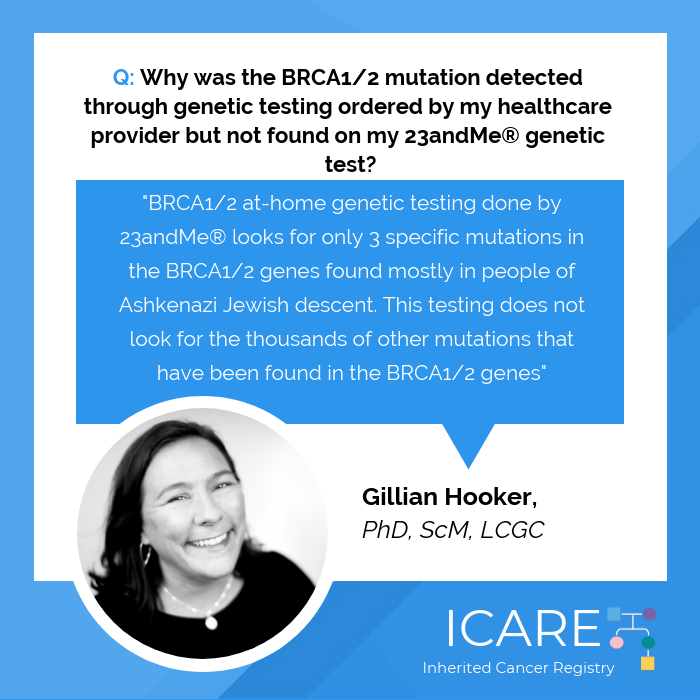The following question was addressed by Gillian Hooker, PhD, ScM, LCGC, who is the president-elect for the National Society of Genetic Counselors, Adjunct Associate Professor in the Division of Genetic Medicine at the Vanderbilt University Medical Center, and the Vice President of Clinical Development for Concert Genetics in Nashville, TN.

Q. Why was the BRCA1/2 mutation detected through genetic testing ordered by my healthcare provider but not found on my 23andMe® genetic test?
A. This is not unexpected. There are thousands of different mutations in the BRCA1 and BRCA2 (BRCA1/2) genes found among families with inherited cancers. When testing is ordered by a healthcare provider, the vast majority of mutations in these genes can be detected if they are there. However, BRCA1/2 at-home genetic testing done by 23andMe® looks for only 3 specific mutations in the BRCA1/2 genes found mostly in people of Ashkenazi Jewish descent. This testing does not look for the thousands of other mutations that have been found in the BRCA1/2 In fact, a study published last year looked at 49 different patients who learned from at-home testing that they had mutations.1 When these samples were tested again after a healthcare provider ordered the test, 40% of the mutations were not found (i.e., they were ‘false positives’). Other “mutations” were present, but turned out to be benign, non-harmful genetic changes after further inspection. These findings highlight the shortcomings of at home genetic testing, and the potential for miscommunication, misinformation, and distress as eloquently articulated in a recent article by Dorothy Pomerantz.2 We recommend reaching out to your doctor or a genetic counselor if you have questions about these tests.
1Tandy-Connors, et al. Genet Med. 2018 Dec. PMID: 29565420.
2Pomerantz D. “23andMe had devastating news about my health. I wish a person had delivered it.” Stat News, available at: https://www.statnews.com/2019/08/08/23andme-genetic-test-revealed-high-cancer-risk/
